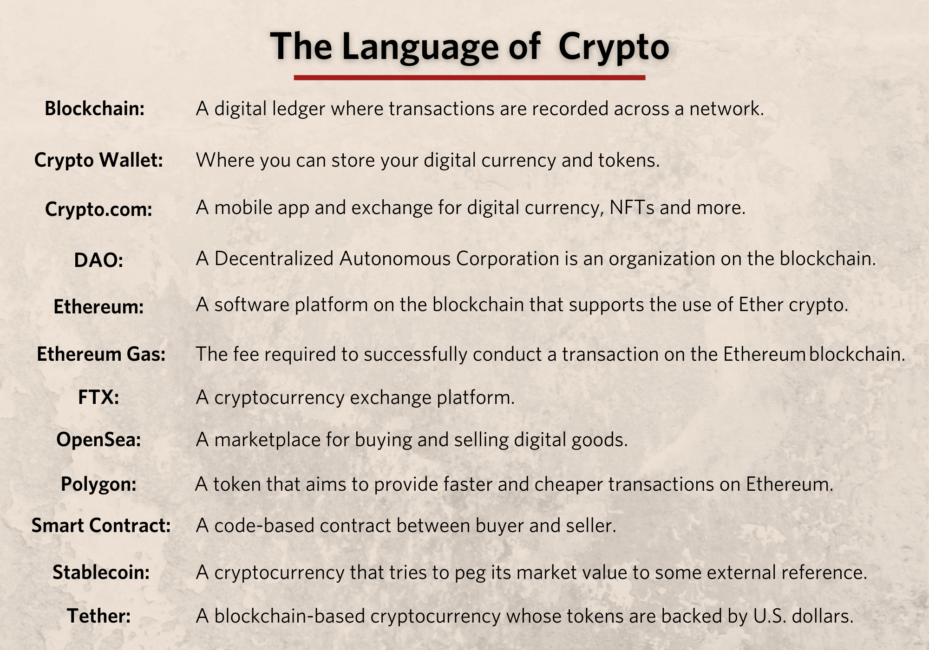Conversation and Crypto with Entrepreneur Mark Cuban


If Mark Cuban could play a superhero, who would he be? Not surprisingly, a character of his own making: FIM or Failed Ironman. “He’s the person who invents things that always fail,” said Cuban. “He fails so much that he learns really good lessons and he uses those lessons to help people.”
This was just one of the fun takeaways from Mark Cuban’s recent virtual visit with Wharton School students during an online “fireside chat” with Sarah Hammer, managing director of Wharton’s Stevens Center for Innovation in Finance. You can watch the full conversation HERE.
The Stevens Center is preparing to launch the Cypher Accelerator in the spring of 2022, a program designed to provide mentoring, education and financial support specifically to blockchain and crypto-related start-up businesses.
Cuban, an entrepreneur, chairman of the Cuban Companies, a regular investor on the TV show Shark Tank, owner of the Dallas Mavericks basketball team, and more, is also a blockchain and crypto investor and expert – and a Cypher Accelerator senior advisor.
During the chat, Cuban went deep on DeFi, short for Decentralized Finance, which is used to describe the system for financial products available on the decentralized blockchain network. (Check out the infographic with this story for more on the language of crypto.) But not before he spoke about his first entrepreneurial endeavor at age 12 — involving low-tech garbage bags.
 Like any good post-game Mav’s report, here are the highlights:
Like any good post-game Mav’s report, here are the highlights:
Mark Cuban on the essence of entrepreneurship. “My first experience with business was when I was 12 and wanted new basketball shoes,” he recalled. “My dad was playing poker with his buddies. I said, ‘Dad, I want a new pair of basketball shoes.’ He goes, ‘Those shoes on your feet seem to be working really well. When you have a job, you can buy whatever you want.’ One of the guys he was playing poker with said, ‘I’ve got these boxes of garbage bags. Why don’t you go out and sell them?’ And so I did. I went door-to-door. I knocked on the door and said, ‘Hello, my name is Mark. I’m your neighbor. Do you use garbage bags?’ It helped me so much because [I began to understand] differentiation: yes, they needed them; I’m cute and you’re going to help your fellow neighbor; and it was convenient. I think people confuse selling with convincing. Selling is not convincing or selling ice to Eskimos. Selling is understanding the value of your product and helping people understand how your product or service can help them. If you have a product or service that truly has value, then you’re really going to be able to have an impact.”
Of garbage bags and crypto. What does selling garbage bags have to do with the emerging crypto industry, with everything from digital currency like bitcoin and NFT (non-fungible token) collectibles, to blockchain and the Solidity programming language? “The analogies to crypto are enormous right now,” said Cuban. “A lot of people look at crypto as being a technology-driven environment. It’s not. The technology around crypto is the easiest thing ever. Blockchains — they’re all basically forms of each other. There’s not a lot of innovation there…You have to understand what’s going to drive people to use it. It’s so easy to clone anything that’s out there that you really have to understand how you’re going to get adoption. If you don’t have adoption, you have nothing.”
Lazy about NFTs. Mark Cuban is an avid NFT collector who spends time searching online marketplaces like Mintable looking for “great art” that he wants to own. But where to showcase all these digital masterpieces? So he and a programmer created Lazy.com, “the lazy way to show off your NFTs.” It’s a simple way to display digital collections. “If you want to see my NFT collection, go to Lazy.com/MCuban,” he noted. “If you want to add your NFTs to the site, all you have to do is connect [your crypto] wallet, pin the ones you want to be seen first, and you’re done. We added the ability to buy and sell, which gave us some revenue. The whole concept was: now you have an easy URL to be able to put in your social media bio or to put in an email to send to somebody.”
The value of digital assets. For skeptics who are still wrestling with whether or not digital collectibles have value, Cuban has a pitch. “Which picture on your phone do you want to delete when you run out of storage? We value digital media as much if not more than we value physical media now. NFTs are just an easier-to-use collectible.” And yes, the basic laws of economics still apply, even to your growing CryptoPunk collection. “In everything you do with collectibles or stores of value, supply and demand is undefeated. It doesn’t matter what you think, say or do, all that matters is if there’s more demand than there is supply, the price goes up. If there’s more supply than demand, the price goes down. If you look at the historical prices for baseball cards, it’s a roller coaster… The same applies to NFTs.”
Attention aspiring entrepreneurs. Soon enough, the team at Wharton’s new Cypher Accelerator will be interviewing lots of start-up applicants who want to be part of its crypto support community. Cuban will be watching for the next great innovation. He wants aspiring entrepreneurs to know that when it comes to the crypto industry, now’s your chance to contribute to a flood of disruptive ideas. “It’s so easy to find ways to deal with digital media to simplify things and make a new path of least resistance for consumers or businesses. We haven’t begun to see the applications in different industries,” said Cuban. “It’s not even the first inning of the first pre-season game. They haven’t even gotten out the bats and balls for practice yet. That’s how early we are in crypto.”
